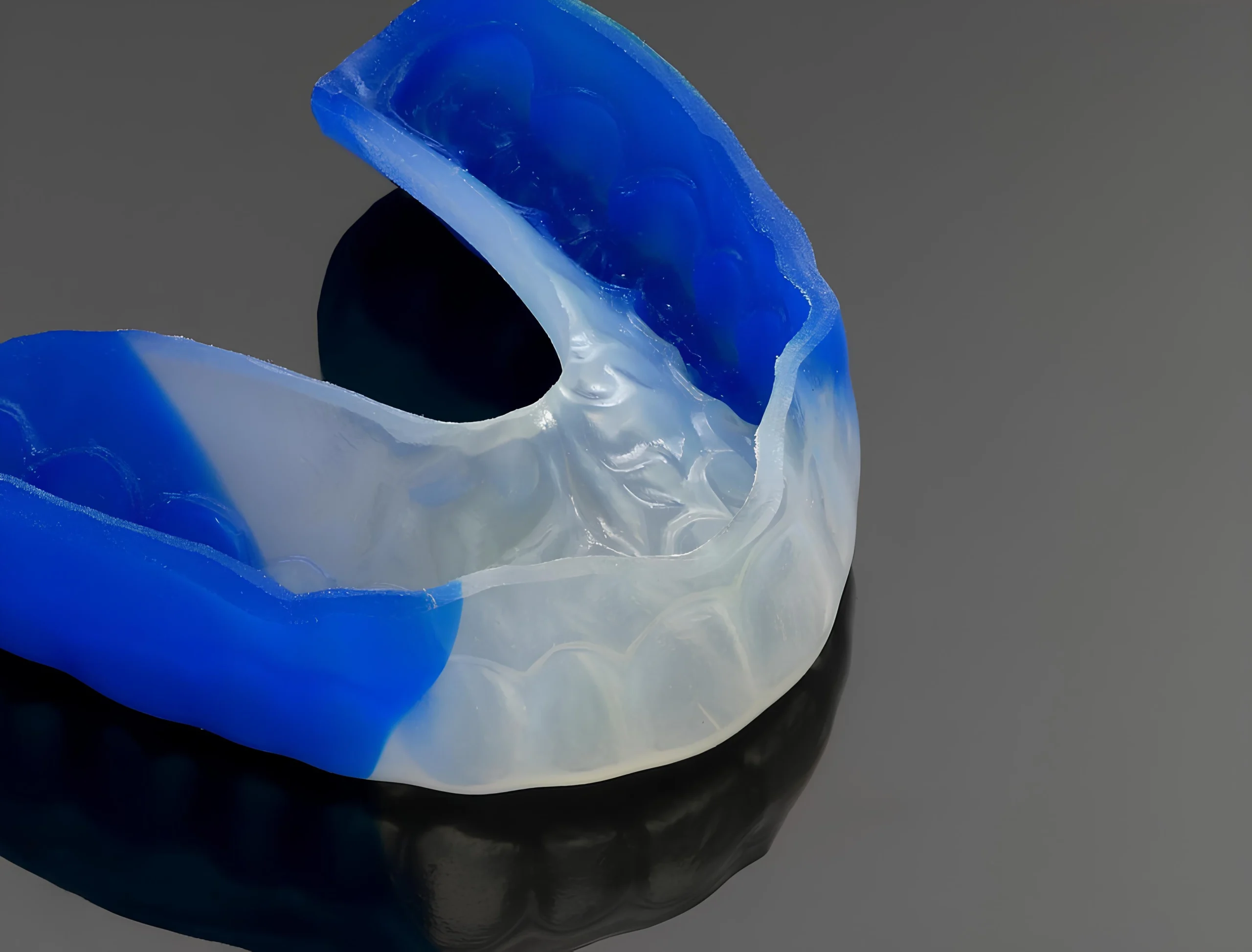When it comes to protecting your teeth, comfort and fit are just as important as durability. For many Ipswich locals, a custom-fit mouthguard offers the perfect balance of personalised protection and long-lasting quality. Unlike off-the-shelf options, these are tailored to your unique bite, ensuring a secure fit that can withstand the rigours of sports, nighttime grinding, or jaw alignment needs.
Understanding the costs involved is an essential step in making the right choice. Factors such as materials, design, and the level of customisation can influence the final price. A well-made mouthguard isn’t just a purchase; it’s an investment in your dental health, potentially saving you from expensive treatments down the line.
In Ipswich, the availability of skilled dental professionals means you can find a custom-fit mouthguardthat residents trust, designed to meet your specific needs without compromising on quality. By knowing what affects the cost, you can make an informed decision that balances protection, comfort, and value.
Why Invest in a Custom-Fit Mouthguard?
Custom guards aren’t just safer; they’re more comfortable. Because they’re made from an exact mold of your mouth, they fit snugly and won’t flop around or make you gag. Dentists emphasise that this precision fit provides maximum comfort and injury prevention. When you can breathe and talk normally, you’ll be more likely to keep it in during a match. Remember: many sports clubs now have a strict “no mouthguard, no play” rule, backed by bodies like the Australian Dental Association.
Key benefits of custom-fitted mouthguards include:
- Top-level protection: Custom guards provide the best shock absorption, shielding teeth and gums more effectively than generic models.
- Comfort and fit: Because they match your mouth exactly, you can breathe, speak, and move freely. Uncomfy off-the-shelf guards may cause you to clench or chew them mid-game, ruining protection.
- Prevents costly treatments: The pain and expense of fixing a knocked-out tooth or broken jaw far exceeds the price of a mouthguard. Queensland health officials warn that mouthguards significantly reduce the chance of serious dental trauma.
- Dentist-approved: The ADA and dental health experts strongly recommend custom guards over “boil-and-bite” or stock versions.
Types of Mouthguards: Sports, Night Guards, and TMJ
Mouthguards aren’t one-size-fits-all. Depending on your needs, you’ll choose different styles of custom guards:
Custom Sports Mouthguard:
Designed for contact sports (football, rugby, boxing, hockey, etc.), these guards use tough, layered materials to absorb big impacts. They cover the upper teeth with extra cushioning. A custom sports guard can even be tuned for different games – some athletes have sleeker guards for faster sports, thicker ones for full-contact.
Custom Night Guard (for Bruxism/TMJ):
Not all mouthguards are for sports. If you grind your teeth at night or have jaw pain, a custom night guard is like a sleep defender for your smile. It’s usually thinner and made of firmer material to protect enamel while you sleep. Countless patients with morning headaches drastically improve after switching to a well-fitting night guard. It redistributes the force of clenching, sparing your teeth from the grind.
TMJ (Temporomandibular Joint) Guard:
Some dental labs create specialized splints for severe TMJ disorders. These are custom devices, often similar to night guards, that help realign your jaw joints. If you’ve been told you have TMJ syndrome, a custom guard can help ease the muscle tension and prevent further damage.
Custom vs Boil-and-Bite Mouthguards
Many Australians grab a boil-and-bite mouthguard from a pharmacy as a quick fix. These generic guards soften in hot water so you can bite them into shape. It’s an okay short-term solution for casual play, but it comes with compromises. Government health advisors warn that over-the-counter guards are better than nothing, yet their protection varies greatly. In practice, store-bought guards often fit poorly: they can be too loose or misshapen, making it hard to talk or breathe naturally. You might find yourself constantly adjusting it or even biting down on it.
By contrast, a custom-fit guard by definition won’t shift around. The ADA notes that a custom guard from a dental impression provides the best protection, fit, and comfort for any sport. It hugs your teeth in all the right places. Think of it like this: a custom guard is a tailored suit for your mouth, while boil-and-bite is off-the-rack. Sure, the tailored suit costs more, but it won’t come apart at the seams or pinch you all day.
To compare:
- Custom-Fit Guard: Dentist-made, precise fit, long-lasting, highest protection. Dogs (or metal braces) can be accommodated. Recommended by dentists and sports associations.
- Boil-and-Bite Guard: Cheap and adjustable, but comfort and protection are hit-or-miss. You risk burning your mouth or ending up with an ill-fitting shield. They should be replaced each season because they lose shape.
- Stock Guard: The cheapest, one-size “gum shield.” Offers minimal protection. These can be bulky, uncomfortable, and are generally not recommended except as a last resort.
The Cost Factor: What Influences Mouthguard Prices
Custom mouthguards don’t have a set sticker price; costs can range widely. Here are the main factors that influence what you’ll pay:
Materials and layers: A basic custom guard might use single-layer EVA plastic, while top-of-the-line versions have 3–4 layers (multiple colors, denser polymers) for extra shock absorption. More layers and high-grade (TGA-approved) materials add to the cost.
Fabrication method: Traditional guards involve dental impressions and lab work. Newer 3D scans and CAD/CAM fabrication can improve precision but might cost extra. Some clinics even do same-day fabrication with on-site labs or printers, which can be a convenience premium.
Customization needs: If you have braces, missing teeth, or require a “breathing hole”, the guard design gets more complex. Custom art or team logos can also bump the price.
Dentist time: Time spent by your dentist or technician, taking the impression, adjusting the final fit, is part of the fee. High-demand clinics may charge a bit more.
Quantity: If you want both upper and lower custom guards, it doubles the lab work. However, occasionally clinics bundle multiple mouthguards at a reduced rate.
Replacement frequency: Kids often need a new guard every year or two. Adults generally get 3–5 years out of one, unless it gets damaged. Factor in that ongoing cost.
Rebates, Insurance, and The Child Dental Benefit Schedule
Many Australians have private health insurance with dental extras. If you have Dental Extras cover, you can usually claim rebates on a custom mouthguard. As a rule of thumb, most health funds cover 50–80% of the cost. For example, some policies list item number 151, “custom mouthguard” under dental extras. So if your guard costs $250 and your fund rebate is $150, your out-of-pocket is only $100.
Even government support helps. Under the Child Dental Benefits Schedule (CDBS), eligible children (6–14 years old) can get one free custom mouthguard per year, provided a dentist makes and fits it properly. The catch: the guard must be custom (not a boil-and-bite), and your child must see the dentist within 6 months of fitting. The policy states clearly that to claim on this program, the mouthguard “is custom-made and properly fitted”. In practice, this means if your child plays a lot of sports, they could get their custom guard almost covered by the government plan.
Balancing Cost and Value
By now, you know a custom mouthguard is not a throwaway purchase. It might cost more than a $20 drugstore guard, but it pays off. Think of it this way: every dollar spent on a mouthguard protects potentially thousands of dental health dollars later. The ADA advises that the cost of a dental injury far exceeds the cost of a mouthguard.
Here are some final tips to make the most of your investment:
Choose quality: Go with a reputable clinic that uses TGA-approved materials. Cheaper labs might skimp on thickness. You want a mouthguard built to last and absorb real impacts.
Wear it consistently: No guard protects if it’s tucked in your pocket. Make wearing it a habit from the first whistle to the final whistle, or throughout every night if it’s a nightguard.
Maintain it: Rinse it after each use, brush it occasionally, and inspect for wear. A good custom guard can last several years if cared for. If it starts feeling loose or shows cracks, schedule a replacement early.
Use rebates: Double-check your insurance and eligible benefits. Even small rebates make a dent in the cost. Let your dentist’s office use any claimed rebates on your behalf.
Investing in a custom guard doesn’t just protect your teeth; it also ensures your long-term budget. After all, neither you nor your insurer wants emergency dental work from a preventable accident.
Safeguard Your Smile with Smart Choices
A custom-fit mouthguard offers unmatched protection, a perfect fit, and long-term durability compared to generic alternatives. It’s crafted to your unique dental structure, ensuring maximum safety whether you’re on the sports field, dealing with TMJ discomfort, or preventing night-time grinding. Considering the cost factors and potential insurance rebates makes it easier to see why this investment is worth every dollar.
By weighing up the pros and cons, you’ll quickly realise that a custom-fit option provides greater value over time, potentially saving you from painful injuries and costly dental repairs. The right mouthguard is not just an accessory; it’s essential protection for your smile and oral health.
If you’re ready to protect your teeth with a custom-fit mouthguard Ipswich locals recommend, contactus today. Our experienced team provides precise fittings, quality craftsmanship, and personalised care to ensure you get the best protection possible. Don’t wait for an injury to remind you, book your appointment now and invest in your smile’s future.
FAQs:
Why are custom-fit mouthguards more expensive than store-bought ones?
They are made to fit your exact dental structure using professional-grade materials, ensuring superior comfort, durability, and protection.
Does the cost of a custom sports mouthguard differ from a night guard?
Yes. Sports mouthguards are generally thicker for impact protection, while night guards are designed to prevent grinding, affecting material use and price.
Are there long-term savings with a custom-fit mouthguard?
Yes. They can prevent costly dental repairs from injuries, cracks, or grinding damage, making them a worthwhile investment over time.


